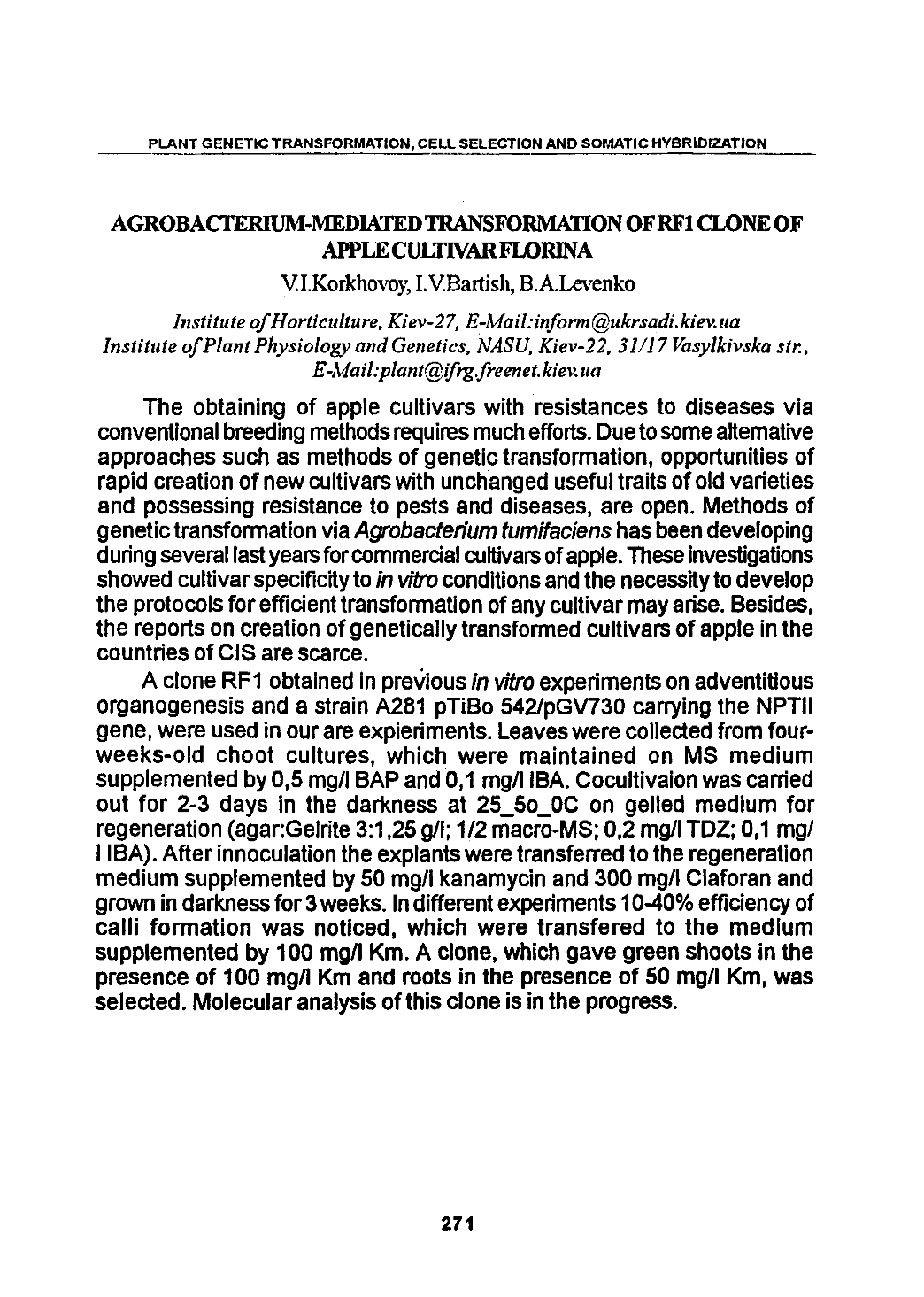

PLANT GENETIC TRANSFORMATION, CELL SELECTION AND SOMATIC HYBRIDIZATION
AGROBACTERIUM-MEDIATEDTRANSFORMATION OFRFI CLONEOF
APPLECULTIVARFLORINA
V.I.Kork hovoy, I.V.Bartish, B .A .Levenko
Institute o fHorticulture, Kiev-27, E-Mail
:inform@ukrsadi.kiev.uaInstitute o fPlant Physiology and Genetics, NASU, Kiev-22, 31/17 Vasylkivska str.,
E-Mail:
plant@ifrg.freenet.kiev.uaThe obtaining of apple cultivars with resistances to diseases via
conventional breeding methods requires much efforts. Due to some alternative
approaches such as methods of genetic transformation, opportunities of
rapid creation o f new cultivars with unchanged useful traits o f old varieties
and possessing resistance to pests and diseases, are open. Methods o f
genetic transformation via
Agrobacterium tumifaciens
has been developing
during several last years for commercial cultivars of apple. These investigations
showed cultivar specificity to
in vitro
conditions and the necessity to develop
the protocols for efficient transformation of any cultivar may arise. Besides,
the reports on creation of genetically transformed cultivars o f apple in the
countries of CIS are scarce.
A clone RF1 obtained in previous
in vitro
experiments on adventitious
organogenesis and a strain A281 pTiBo 542/pGV730 carrying the NPTII
gene, were used in our are expieriments. Leaves were collected from four-
w eeks-o ld choot cultures, which were maintained on MS medium
supplemented by 0,5 mg/l BAP and 0,1 mg/l IBA. Cocultivaion was carried
out fo r 2-3 days in the darkness at 25_5o_0C on gelled medium fo r
regeneration (agar:Gelrite 3:1,25 g/l; 1/2 macro-MS; 0,2 mg/l TDZ; 0,1 mg/
I IBA). A fter innoculation the explants were transferred to the regeneration
medium supplemented by 50 mg/i kanamycin and 300 mg/l Claforan and
grown in darkness for 3 weeks. In different experiments 10-40% efficiency of
ca lli fo rm a tion was noticed, which were transfe red to the medium
supplemented by 100 mg/l Km. A clone, which gave green shoots in the
presence o f 100 mg/l Km and roots in the presence o f 50 mg/l Km, was
selected. Molecular analysis o f this clone is in the progress.
2 7 1
Научная электронная библиотека ЦНСХБ









